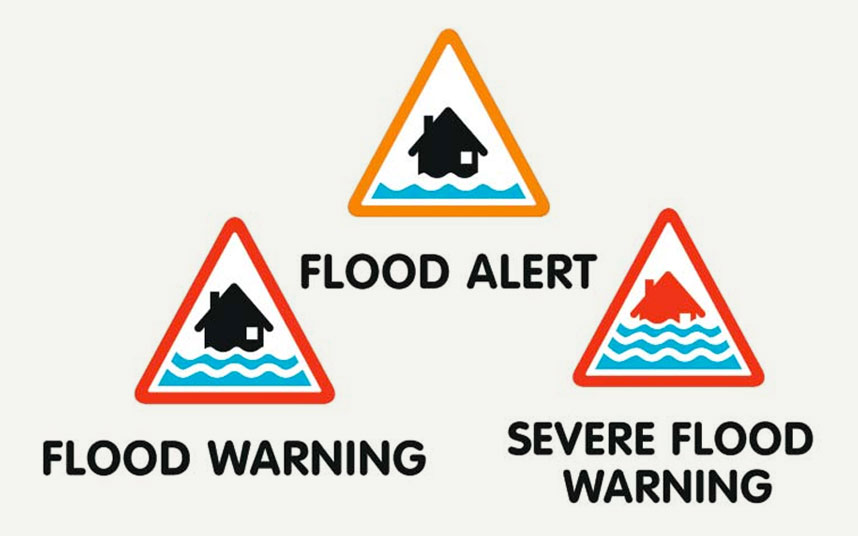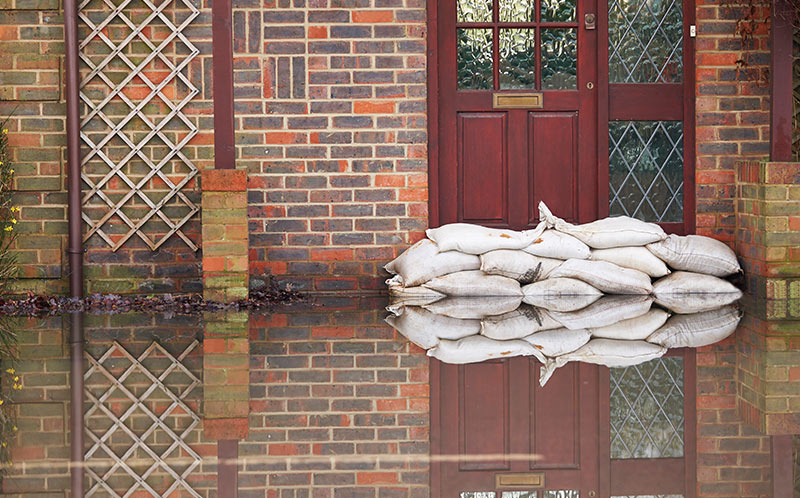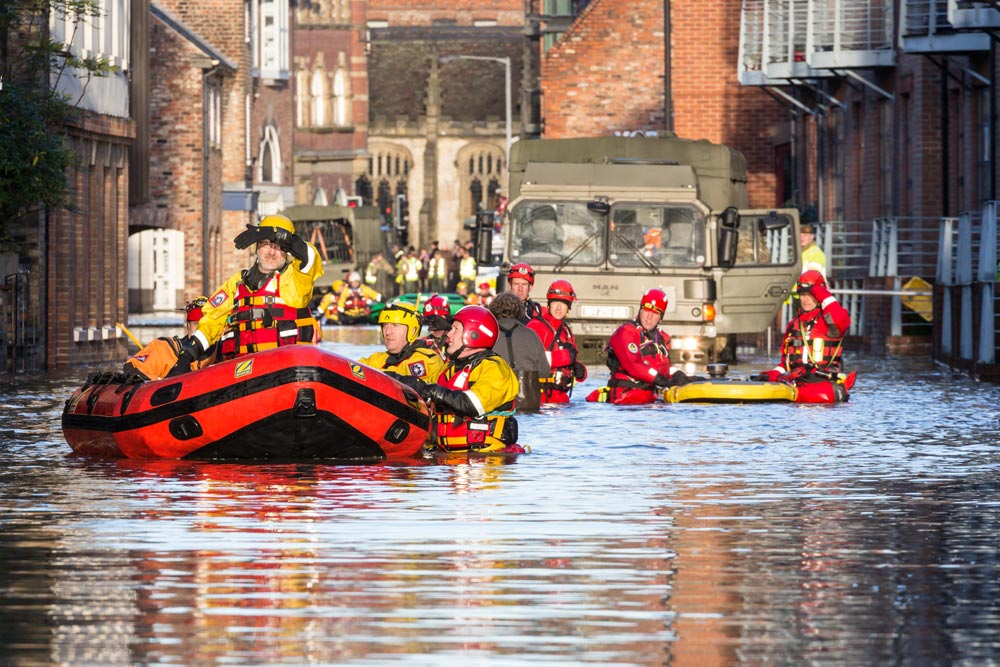Thousands of people were displaced and their homes damaged after flooding affected large areas in the north of England, Wales and Scotland last year.
If you’re worried that it might happen to you this year, here are some tips from charity the National Flood Forum and insurer AXA.
You can ask the Environment Agency for the flooding history of any property. This should be free.

Severe Flood Warning: Severe flood warning. Danger to life
Flood Warning: Flooding is expected. Immediate action is required
Flood Alert: Flooding is possible. Be prepared
Warning no longer in force: Flood warnings and alerts have been removed in the last 24 hours
If there are no signs of flooding yet
If there is time, consider flood resilience measures, such as installing “cell insulation” and water-resistant windows and doors, and moving sockets higher up walls.
Insurers will increasingly consider installing flood resilience measures if they are repairing your home after a previous flooding incident, so ask if they will do this.
If not, you can pay to install them. If you have been flooded in the past you might be eligible for a flood resilience grant of up to £5,000. Ask your local council how to apply.
Other measures, such as replacing carpeted floor with tiles, reduce the impact of a flooding incident and make it quicker for your home to be restored in the event of a flood.
You should also find out how to turn off your gas, electricity and water supplies – you may have to do this in the dark if flooding happens at night. Keep a list of useful phone numbers and an emergency flood kit, with waterproofs, a torch, a radio, and non-perishable food and bottled water, so you can react quickly. Take photos of your home before it has been damaged – this will help settle any insurance claim.
Make an action plan, including where you will go if flooding hits, what you will do with furniture and what you will prioritise to move to a high-up place, and store vital documents, chargers and photographs safely.
Work out whether you can quickly roll up carpets and rugs, and organise a plan to do this.

If flooding is imminent
Turn off your water, gas and electricity supplies and unplug all electrical items – they can be dangerous if waterlogged.
Now is the time to put that action plan into place – prioritise vital, irreplaceable items like important documents, family photographs and valuables.
Credit: The Telegraph

